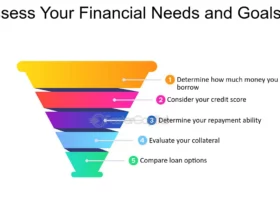Title: Understanding the Impact of Economic Policy on Personal FinancesAs a brand committed to empowering individuals with valuable financial insights, Finance aims to shed light on the crucial relationship between economic policy and personal finances. Understanding how economic policies influence our financial well-being is essential for making informed decisions and planning for the future. In this comprehensive blog post, we will explore the intricacies of economic policy and its direct impact on personal finances, providing you with the knowledge to navigate these complex dynamics.
The Impact of Economic Policy on Personal Finances
The intricate web of economic policies crafted by governments and central banks plays a pivotal role in shaping the financial landscape within which individuals navigate their personal finances. These policies encompass a wide array of measures, including fiscal policies (government spending and taxation) and monetary policies (interest rates, money supply, and credit availability), all of which have tangible consequences for households and businesses alike.
Understanding Fiscal Policies
Fiscal policies, instated by governments, impact personal finances through the regulation of taxation and expenditure. Taxation policies directly impact individuals’ disposable income, influencing their spending habits, saving capacity, and overall financial stability. Changes in tax rates and brackets can significantly alter the amount of money people have at their disposal, thereby affecting their ability to meet financial obligations, invest, or pursue personal goals.
Moreover, government expenditure influences personal finances by stimulating economic activity, creating job opportunities, and fostering overall economic growth. Increased government spending in infrastructure, healthcare, and education can catalyze job creation and income generation, thereby augmenting individuals’ earning potential and shaping the economic environment in which they operate.
Monetary Policy’s Ripple Effects
On the other hand, monetary policies orchestrated by central banks wield influence through interest rate adjustments, money supply regulations, and credit market interventions. Fluctuations in interest rates have direct repercussions on mortgages, loans, and savings, ultimately impacting the cost of borrowing and the returns on savings and investments. As such, shifts in these rates can significantly alter individuals’ debt burdens and their capacity to grow wealth through savings and investments.
Additionally, the control of money supply and credit availability directly influences borrowing costs and access to credit for individuals. Tightening or loosening credit conditions can affect the affordability and availability of loans for purposes such as home purchases, education, or business expansion, thereby shaping individuals’ financial opportunities and obligations.
Navigating the Impact on Personal Finances
Understanding the intricate interplay between economic policy and personal finances equips individuals with the knowledge to make prudent financial decisions and adapt to evolving economic conditions. With a nuanced awareness of how fiscal and monetary policies influence their financial landscape, individuals can proactively manage their budgets, savings, and investments to mitigate risks and capitalize on opportunities presented by the shifting economic tides.
Embracing Financial Resilience
Armed with knowledge about the impact of economic policy on personal finances, individuals can cultivate financial resilience by crafting diversified investment portfolios, maintaining emergency funds, and prudently managing debt. Anticipating and adapting to the ripple effects of economic policies enables individuals to prepare for potential challenges while harnessing opportunities for financial growth and stability.
Advocating for Financial Literacy
Moreover, shedding light on the nexus between economic policy and personal finances underscores the critical importance of financial literacy. Through education and advocacy, individuals can enhance their understanding of economic policy dynamics, empowering themselves to make informed financial choices and advocating for policies that foster economic inclusion and opportunity.
In Conclusion
The complex interplay between economic policy and personal finances underscores the interconnected nature of global economic systems and individuals’ financial well-being. By recognizing and comprehending the impact of fiscal and monetary policies, individuals can proactively navigate economic shifts, mitigate risks, and capitalize on opportunities, thus fostering financial resilience and empowerment.
At Finance, we remain committed to equipping our audience with valuable insights and knowledge to navigate the intricacies of personal finance and global economic dynamics. Join us in our mission to foster financial literacy and empowerment, as we continue to delve into the multifaceted intersections between economic policy and personal finances.
In essence, understanding the impact of economic policy on personal finances is an indispensable tool for financial empowerment and informed decision-making, enabling individuals to navigate complex economic landscapes with confidence and resilience.











